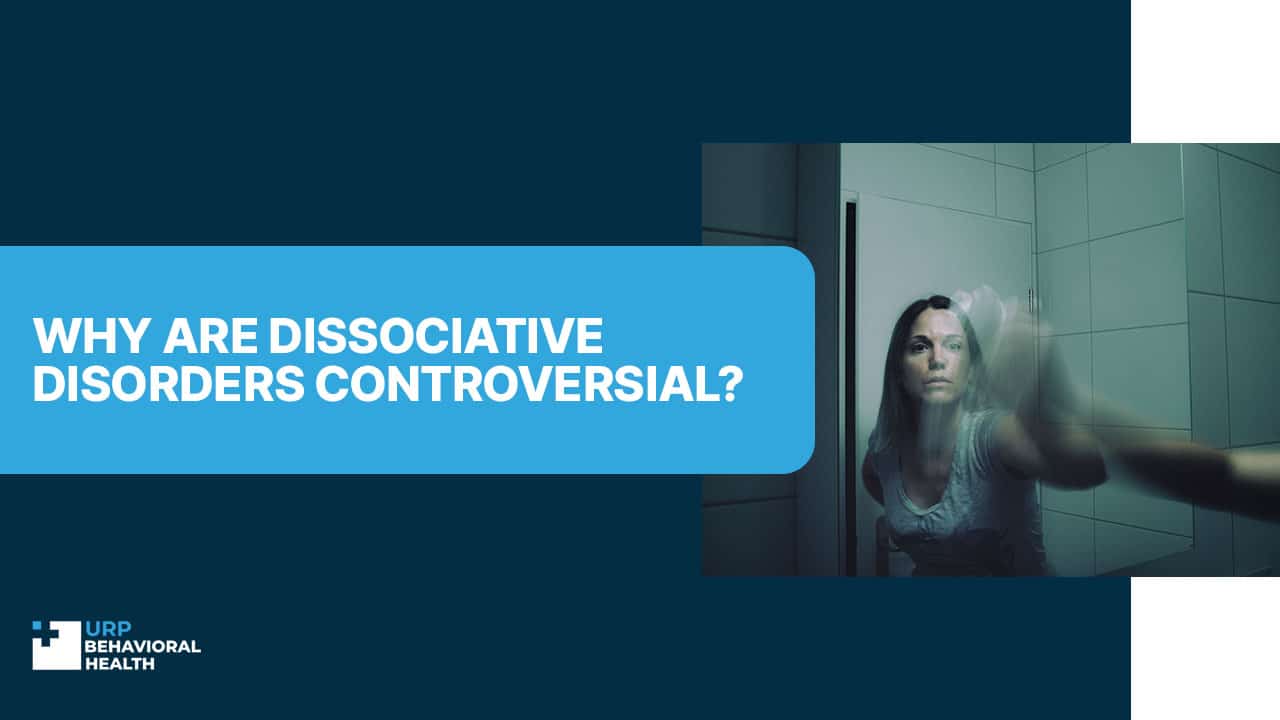
Why are Dissociative Disorders Controversial?
Probably, there is no more such a complex yet controversial mental disorder like DID or dissociative identity disorder. Also known as split personality disorder or multiple personality disorder, it is widely enclosed in media yet remains one of the most enigmatic mental health issues ever. What makes DID controversial? Let’s explore its essence, typology, symptoms, and the attitude toward it in the scientific community.
What Are Dissociative Disorders?
People who have multiple personalities in one body are not a new phenomenon. The first issues of what we today call DID were documented in chronicles in the mid-XVI century. Although there were only a couple of documented cases, their explanation matches what today is called dissociative disorders.
Further, not only DID was considered a dissociative disorder, as depersonalization/derealization disorder, dissociative amnesia, OSDD and UDD were added to the list of mental health issues related to identity dissociation as the main symptom [1].
The Main Features and Symptoms Distinguishing DDs?
What symptoms are characteristic of dissociative disorders you may ask.
The existence of 2 or more separate personalities in one body called alters is the first and the most important sign of DID (the most popular and spotlighted type of dissociative disorder). These split personalities can be of various ages, genders, and nationalities, and they have split memories, preferences, and experiences which don’t intersect with one another.
- Memory gaps and amnesia issues which are characteristic of both DID and dissociative amnesia. People with these disorders may have erased or substituted (false) memories of everyday events, some traumatic situations, or even about their personal information.
- Sudden shifts in personal preferences. A DID-diagnosed person may say they love soccer and peanut butter one day but truly express hatred for them both in an hour or the next day.
- Some patients with dissociative disorders also experience time loss, and catatonic or trance states.
- One more distinctive symptom of DID and other dissociation disorders is a tendency to self-punishment, self-harm, and suicidal behavior [2].
Don’t wait - confidential help is available right now for you or your loved one.
As for the neural specifics of DID, there are pieces of research stating that dissociative disorders are correlated with reduced activity in limbic temporal areas (amygdala, superior and fusiform gyrus) and increased frontal activity along with altered interactions between them [3].
What Triggers Cause DID?
The first and foremost trigger of DID proved scientifically is long-lasting childhood trauma which makes a person substitute memories about it with false ones and develop a separate identity (alter) which can cope with traumatic experience. Simply put, a child faced with severe trauma further escapes from hurting memories and reality to another personality. With time, mosaic identities’ numbers may increase. Besides trauma, psychiatry also bonds DID to constant and persistent neglect and emotional abuse of a child at the most sensitive childhood stage (before the age of 6).
Why Is Dissociative Identity Disorder Controversial?
Despite quite a clear explanation and regular updates in the research of DID and other dissociative disorders, controversy surrounding dissociative disorders still exists. There are three main reasons for this.
Three Main Controversies About Dissociative Identity Disorder
Today, dissociative identity disorder is controversial because of the following:
- There is a discussion in the scientific community about the iatrogenic backgrounds of DID. Some researchers believe that split personalities are the result of iatrogenic influence.
- There are also doubts about current DID diagnostic criteria. Are they valid enough? Researchers insist on providing structured clinical interviewing for patients supposed to have dissociative disorders.
- Finally, there is a controversial opinion on the existence of psychogenic amnesia as the main symptom of dissociative disorders. Some scientists tend to consider it unintentionally inducted by overzealous medical specialists [4].
At once, DID and other dissociative disorders are not a trial although dissociative identity disorder controversy makes the therapy choice quite complex. Today, healthcare providers succeed in mitigation of DID symptoms and help patients control them to return to their normal life functions. These treatment methods include psychotherapy, CBT, and sometimes, hypnosis. In URP Behavioral Health rehab center you can get complex care including advanced diagnostics of DDs, thoroughly chosen therapy plans, and overall guidance by high-class professionals. Do not stay alone with your dissociative symptoms and pains. The remedy exists and it’s available for everyone.
Reach out today and let us create a treatment plan designed around your needs.
Resources:
- https://www.mind.org.uk/information-support/types-of-mental-health-problems/dissociation-and-dissociative-disorders/dissociative-disorders/
- https://www.webmd.com/mental-health/dissociative-identity-disorder-multiple-personality-disorder
- https://pmc.ncbi.nlm.nih.gov/articles/PMC5857558/#:~:text=While%20the%20precise%20neural%20mechanisms%20of%20dissociation%20remain%20elusive%2C%20there,altered%20interactions%20between%20these%20regions
- https://onlinelibrary.wiley.com/doi/abs/10.1002/%28SICI%291099-0879%28199803%295%3A1%3C13%3A%3AAID-CPP148%3E3.0.CO%3B2-J
















